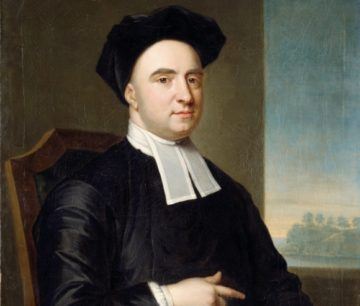Alex Dean in Prospect:
 George Berkeley is one of the greatest philosophers of the early modern era. Along with John Locke and David Hume, he was a founder of Empiricism, which championed the role of experience and observation in the acquisition of knowledge. He influenced Kant and John Stewart Mill, and even pre-empted elements of Wittgenstein. His book The Principles of Human Knowledge is a masterwork still set on university philosophy courses the world over, and indeed there is a famous university named after him in California. The celebrated Irishman even inspired a limerick.
George Berkeley is one of the greatest philosophers of the early modern era. Along with John Locke and David Hume, he was a founder of Empiricism, which championed the role of experience and observation in the acquisition of knowledge. He influenced Kant and John Stewart Mill, and even pre-empted elements of Wittgenstein. His book The Principles of Human Knowledge is a masterwork still set on university philosophy courses the world over, and indeed there is a famous university named after him in California. The celebrated Irishman even inspired a limerick.
Yet Berkeley is also widely misunderstood. Different aspects of his thinking, not to mention his character, seem to clash quite spectacularly. His most famous doctrine was viewed as heretical in its day, yet Berkeley was a bishop and fierce believer in the supremacy of the Anglican church. He simultaneously advanced radically counter-intuitive and staunchly conservative arguments. He was a passionate social reformer but was complicit in appalling social evils. This makes Berkeley a fascinating subject. He appears a study in contradiction—but stick with him long enough and you realise that maybe there is no contradiction at all.
More here.
